Are you a distributor or importer?
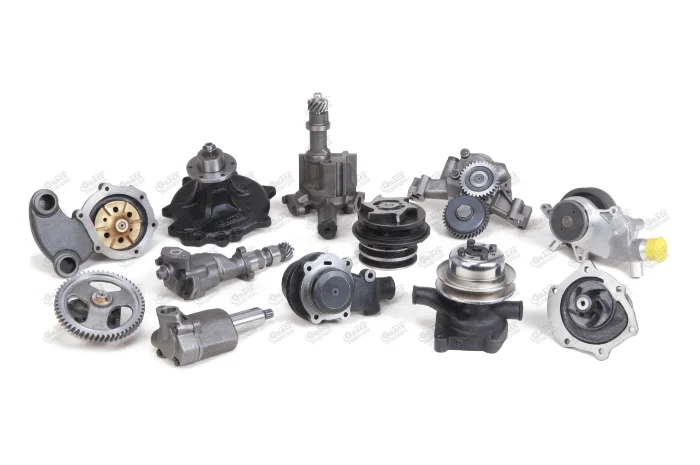
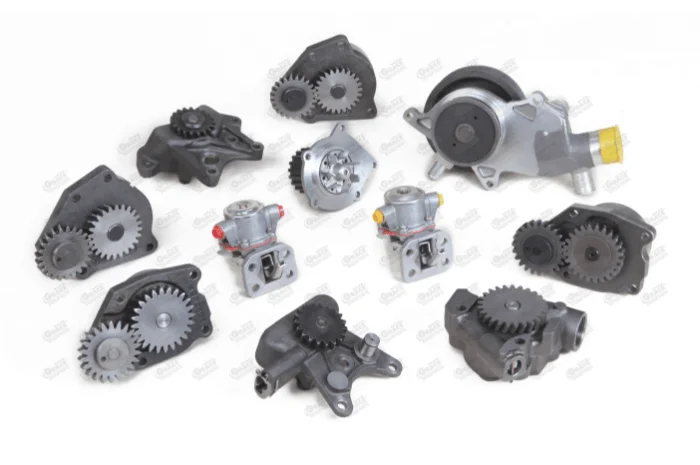
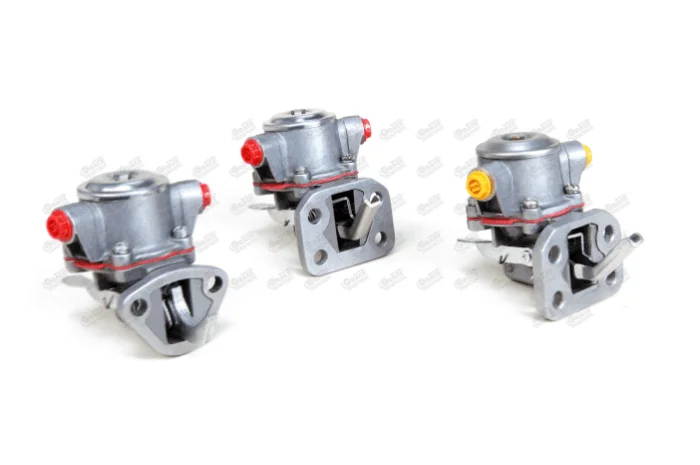
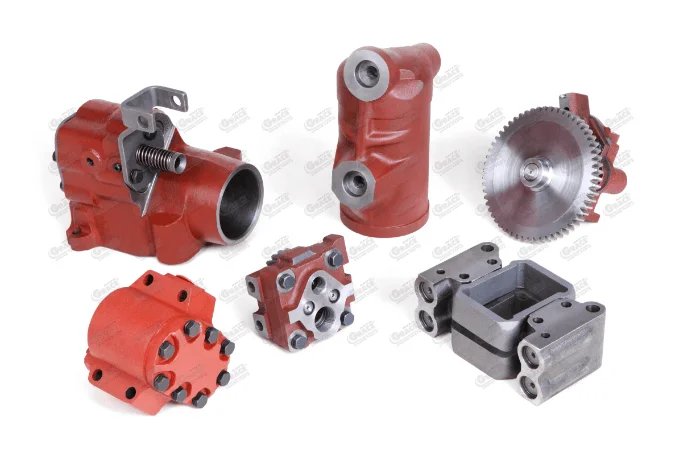
A typical internal combustion engine uses 3-4 different pumps to keep the various fluids circulating in their respective circuits at a pressure that promotes optimum engine operation.
Garima Global has developed a wide range of AutoGRACE® brand pumps with leading manufacturers of oil pumps, water pumps, fuel pumps and hydraulic pumps in India.

An automotive oil pump, also known as lubricating oil pump, is responsible for circulating engine oil through the oil galleries built into the engine head and block with outlets at the sites where lubrication is necessary. Thus engine bearings, rocker shafts, camshafts journals, crankshaft journals, piston rings, valve stems and other rotating / sliding components of the engine are lubricated with a constant supply of engine oil pressurized by the oil pump.
Obviously any malfunction of the oil pump will directly lead to engine overheating in the mildest of cases, and complete engine seizure in the worst case.
Primarily engines are of wet or dry sump type – a single oil pump serves dual purposes of circulating oil as well as scavenging it from the sump in wet sump system, while in the dry sump case two different oil pumps carry out these two functions.
For standard applications unregulated pumps suffice the purpose of circulating the total oil volume 4-6 times through the engine per minute to achieve adequate lubrication.
However, modern engines use oil not only for lubrication but as a hydraulic fluid in small actuators like hydraulic tappets, timing belt tensioners and variators / VVT hubs in variable valve timing systems. This creates a disproportionately high demand for oil at lower engine speeds to power the various hydraulic actuators. For such cases AutoGRACE® brand variable flow oil pumps can adjust the delivery rate as per the demand of oil, independent of engine speed.

Majority of modern engines are liquid cooled, as opposed to the older air-cooled engines. To pump this coolant through the engine is the work of the engine water pump, or the coolant pump. Usually these are centrifugal pumps that circulate water (or coolant) through the various cooling channels cast into the head and the block. The coolant collects the heat and dissipates it through the radiator.
Water pumps are more susceptible to leakage issues than lubricating oil pumps since the liquid being pumped is much less viscous and can easily make its way through minute cracks or fitment gaps of the rotor seals. Quality of the seal is the single most important factor that determines the reliability of these pumps. A malfunction in the water pump leads to rapid increase in the operating temperature of the engine leading to expensive downtime of the machinery. If ignored, it will ultimately lead to engine seizure. AutoGRACE® brand water pumps are manufactured by the leading manufacturers of automotive water pumps in India, using only the best quality seals.
These pumps can be categorized into:
The pump is bolted directly onto the block and sealed using a flat gasket or sealing ring.
These are self-contained assemblies and are mounted independent of the engine block.
Both closed and open type water pumps may be driven directly by the engine using gears, or by using plain or ribbed V-belts and timing belts of the engine.
The latest fluid dynamics models are used to design impellers that maximize pumping efficiency while considering manufacturing limitations. Impellers may be made of plastics, cast iron, steel, aluminum or brass.
Garima Global has also developed improved versions of OEM pumps by replacing plastic / fiber impellers with cast iron ones to make them more durable.
Modern diesel engines apply two pumps to create sufficient fuel injection pressure at the injectors. First a low-pressure lift pump or feed pump is used to raise level of the fuel from the fuel tank up to the fuel injection pump. The high pressure injection pump then takes over and controls the quantity as well as pressure of the fuel inside the injectors.
Thus feed pumps play a complementary role in increasing the efficiency of the engine by assisting the main injection pump which is much more expensive to maintain and replace.
Garima Global sources its AutoGRACE® brand feed pumps from the most qualified and experienced manufacturers of feed pumps and lift pumps in India, so that our customers can be confident about their reliability and durability.


Although not strictly related to engine, in many applications like older models of tractors, the hydraulic pump is driven directly by the engine. It is used to pressurize the hydraulic fluid used to power various implements, attachments and tools attached to the tractor / construction machinery. Since they work under high pressure, reliability is fundamental to a good quality hydraulic pump, which is where Garima Global plays an integral part by sourcing them from the leading manufacturers of automotive hydraulic pumps in India.
All pumps require maintenance at regular intervals, hence Garima Global has developed a comprehensive range of repairs kits for lubricating oil pumps, coolant / water pumps, lift / feed pumps and hydraulic pumps which consists of seals, gaskets, control valves, hydraulic chambers, control levers, hydraulic pump camshafts, Teflon® rings, hydraulic arms & shafts, safety valves, filters etc. manufactured by leading manufacturers of parts for hydraulic pumps in India.
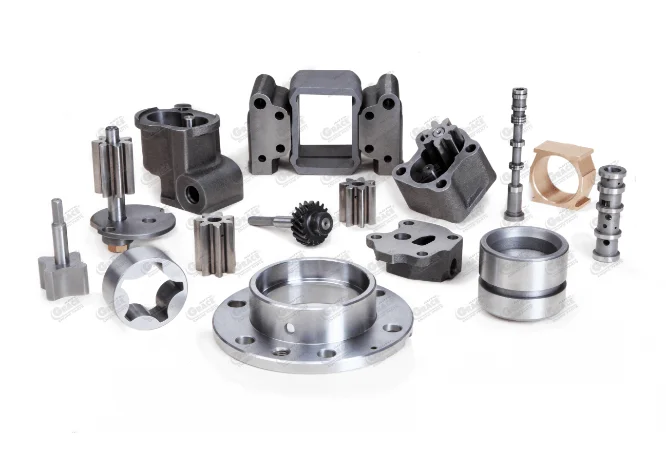
Start the
conversation.
Every beautiful relationship starts with a simple hello. So let’s chat. It might just be the start of something memorable.